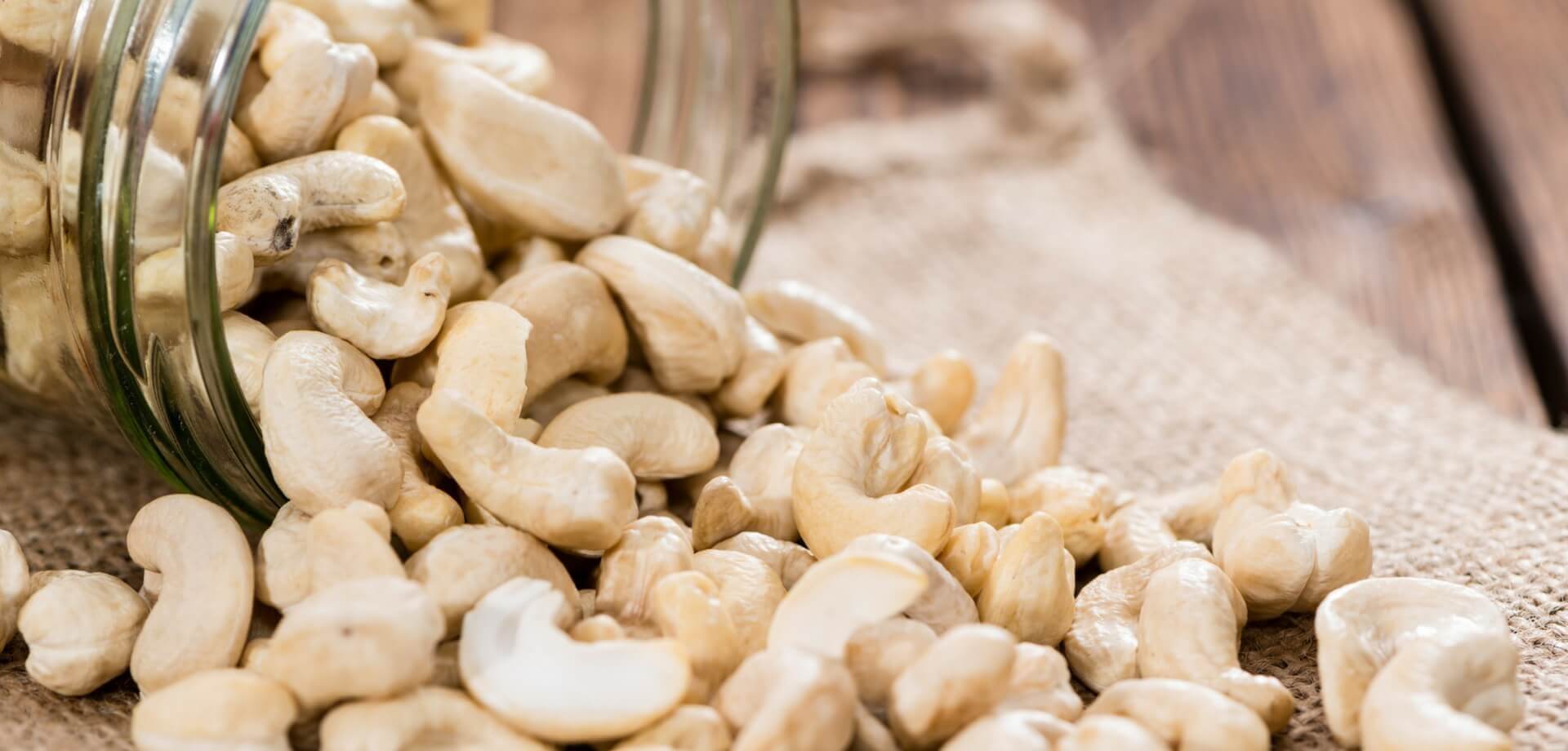Nuts have long been acknowledged for their exceptional nutritional value and their ability to positively impact overall health. They are a rich source of essential nutrients, including healthy fats, protein, fiber, vitamins, and minerals. Among the various types of nuts, cashew nuts stand out for their unique flavor and remarkable versatility. They have a creamy texture and a slightly sweet taste that makes them a favorite among many people. Whether consumed as a delightful snack or used as an ingredient in a wide range of recipes, cashews prove to be a valuable and enriching addition to any well-balanced diet.
Types of Nuts
When it comes to nuts, there is a wide variety to choose from, each offering its own unique flavor and nutritional benefits. Let’s take a closer look at some of the most popular types of nuts:
Almonds: These small, oval-shaped nuts have a slightly sweet and nutty taste. They are packed with healthy fats, fiber, and vitamin E, making them a nutritious snack option.
Pistachios: With their vibrant green color and slightly salty taste, pistachios are a favorite among nut lovers. They are a good source of protein, fiber, and antioxidants.
Walnuts: Known for their brain-like appearance, walnuts have a rich, earthy flavor. They are high in omega-3 fatty acids, which are beneficial for heart health.
Pecans: These buttery and sweet nuts are often used in desserts like pecan pie. They are a good source of monounsaturated fats and contain antioxidants that help fight inflammation.
Hazelnuts: Hazelnuts have a rich, slightly sweet flavor and are commonly used in spreads like Nutella. They are a good source of vitamin E and contain healthy fats that promote heart health.
Brazil nuts: These large, creamy nuts have a mild, buttery taste. They are a great source of selenium, a mineral that plays a crucial role in thyroid function and antioxidant defense.
Macadamia nuts: Macadamia nuts are known for their smooth and creamy texture. They have a rich, buttery flavor and are a good source of monounsaturated fats.
Cashew nuts: Cashews have a delicate, buttery taste and a creamy texture. They are often used in both sweet and savory dishes, adding a unique flavor and texture.
Cashew nuts, in particular, are known for their rich, buttery taste and are a favorite in both sweet and savory dishes.
The Origin of Cashew Nuts
The cashew tree, also known as Anacardium Occidentale, is indigenous to South America, specifically Brazil. However, it was during the 1550s that Portuguese colonists brought cashews from Brazil to India. The country’s coastal regions, blessed with a tropical climate, proved to be the ideal environment for cashew cultivation.
Today, cashews are also cultivated in various tropical regions, including India, Vietnam, and Africa. The cashew tree produces a red, apple-like fruit, and the nut grows at the bottom of this fruit. The process of harvesting and shelling cashews is labor-intensive, but the end result is a delicious and nutritious nut that is enjoyed around the world.
Health Benefits of Cashew Nuts
Heart Health
Cashew nuts are a good source of healthy fats, including monounsaturated and polyunsaturated fats, which can help lower harmful cholesterol levels. They also contain magnesium, which plays a crucial role in maintaining a healthy heart rhythm.
Weight Management
Despite being relatively high in fat, cashew nuts can still be a part of a healthy diet. The combination of protein, fiber, and good fats in cashews can help promote a feeling of fullness and prevent overeating.
Nutrient-Rich
Cashew nuts are packed with essential nutrients such as vitamins, minerals, and antioxidants. They are particularly high in copper, which is important for energy production, brain health, and immune function.
Eye Health
Cashews contain significant amounts of lutein and zeaxanthin, two antioxidants that are beneficial for eye health. These compounds may help reduce the risk of age-related macular degeneration.
Bone Health
The minerals found in cashew nuts, including calcium, magnesium, and phosphorus, contribute to bone health and may help prevent conditions like osteoporosis.
Promotes Healthy Skin
Cashews, rich in Vitamin E, an antioxidant, can protect the skin from damage and reduce oxidative stress and inflammation, promoting skin health.
Helps Regulate Blood Sugar
Cashews, owing to their low glycemic index and high fiber content, can help regulate blood sugar levels, making them a good choice for people with diabetes.
Alleviates Inflammation
Cashews are abundant in Vitamin E and magnesium, which can help reduce inflammation in the body.
Aids Digestion
The high fiber content in cashews aids digestion by reducing constipation and promoting regular bowel movements.
Enhances Brain Function
Cashews are rich in vitamins and minerals like Vitamin E and magnesium, which are key for promoting cognitive function and memory.
Culinary Uses of Cashews
Cashews can be consumed directly as a snack or incorporated into various dishes. They can be used to enhance breakfast cereals, salads, and main dishes like stir-fries and curries. Additionally, cashews can be ground into a fine paste to prepare cashew butter or cashew cream, often used as dairy alternatives. They can also be roasted with a variety of seasonings for a delicious, crunchy snack.
Delicious Cashew Recipes
Cashew Milk
Ingredients:
- 1 cup of raw cashews
- 4 cups of water
- Sweetener of choice (optional)
- Vanilla extract (optional)
Instructions:
- Soak the cashews in water for at least 4 hours or overnight.
- Drain and rinse the soaked cashews.
- Combine the cashews and 4 cups of water in a blender.
- Blend on high speed for 2 minutes.
- Strain the mixture through a nut milk bag or fine cheesecloth.
- Add sweetener and vanilla extract if desired.
- Store the cashew milk in the refrigerator for up to 3-4 days.
You can also easily make this recipe through video tutorials on our youtube channel.
Cashew butter
Ingredients:
- 2 cups raw cashews
- 1-2 tbsp neutral oil
- Optional: sweeteners (honey, maple syrup, or sugar), pinch of salt
Instructions:
- Roast cashews: Preheat oven to 350°F, roast cashews for 10-12 mins until golden. Cool.
- Blend: Process roasted cashews in a food processor until smooth and creamy (10-15 mins). Add oil if needed.
- Flavor: Add salt and sweetener to taste.
- Store: Transfer to a clean glass jar. Store at room temperature for up to a week or in the fridge for up to two weeks.
You can also easily make this recipe through video tutorials on our youtube channel.
These recipes offer just a glimpse of the many ways cashew nuts can be incorporated into a healthy diet. Whether enjoyed on their own as a snack, used in cooking, or blended into creamy beverages, cashews are a delicious and nutritious addition to any meal plan.
In conclusion, it is important to note that the health benefits of cashew nuts make them a valuable inclusion in a balanced diet. From supporting heart health to providing essential nutrients, cashews offer a range of reasons to enjoy them regularly. With their delightful taste and culinary versatility, it’s no wonder that cashew nuts have become a beloved choice for health-conscious individuals worldwide.



